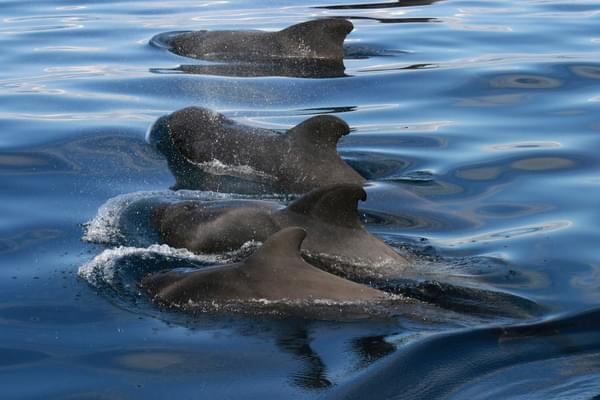How do you explain a complex conservation tool to someone who’s still revising for GCSEs or scrolling faster than a dolphin sprint? You show it. That’s exactly what Erich Hoyt and comics artist Rozi Hathaway have done with their new graphic story about Important Marine Mammal Areas (IMMAs) - a punchy, beautifully drawn “why it matters” tour of how scientists identify the ocean places whales, dolphins and porpoises need most. It’s approachable, heartfelt and rigorously grounded in science - all the components needed to bring new audiences into ocean protection.
If you’re new to IMMAs, think of them as evidence-based “priority habitats” for marine mammals. There are now 300-plus IMMAs worldwide - nearly a fifth of the ocean examined so far - and they’re all visible on the public IMMA e-Atlas, a map anyone can explore to see which species are present and why a site matters. That accessibility is the point: policy makers, teachers, shipping companies and curious 14-year-olds can all click, learn and act.
This comic sits within a fast-growing movement to deliver science in formats people actually choose to read. Rewriting Earth (formerly Rewriting Extinction) has shown how short, shareable comics - co-created with scientists and storytellers - can pull millions into the climate and biodiversity conversation. Their book The Most Important Comic Book on Earth brought together 300+ contributors - artists, conservationists and well-known names - to tell 120 compact stories that travel far beyond the usual green echo chambers. And yes, celebrity-curated strips (from the likes of Ricky Gervais, Cara Delevingne and Peter Gabriel) have helped these ideas land with audiences who might never open a journal article.
Why does this matter to ORCA? Because saving whales isn’t just about data (though we love data). It’s about building a public that understands vessel strike risk, quiet seas, bycatch, and why a map polygon can change law. Visual storytelling lowers the barrier to entry, makes abstract threats tangible, and invites young people to see themselves as part of the solution. That’s how you grow lifelong ocean advocates and accelerate support for practical measures like better shipping lanes, protected corridors and smarter fisheries management.
Science is our foundation, but stories help make that accessible and bridge the gap. Put them together, and the next generation won’t just understand the ocean, they’ll fight for it.

ORCA's work to protect whales and dolphins has never been more important and to help safeguard these amazing animals for the future we need your help. Please support our work by donating at www.orca.org.uk/donate to help us create oceans alive with whales and dolphins

